The Most Common Airbnb Scams and How To Avoid Them
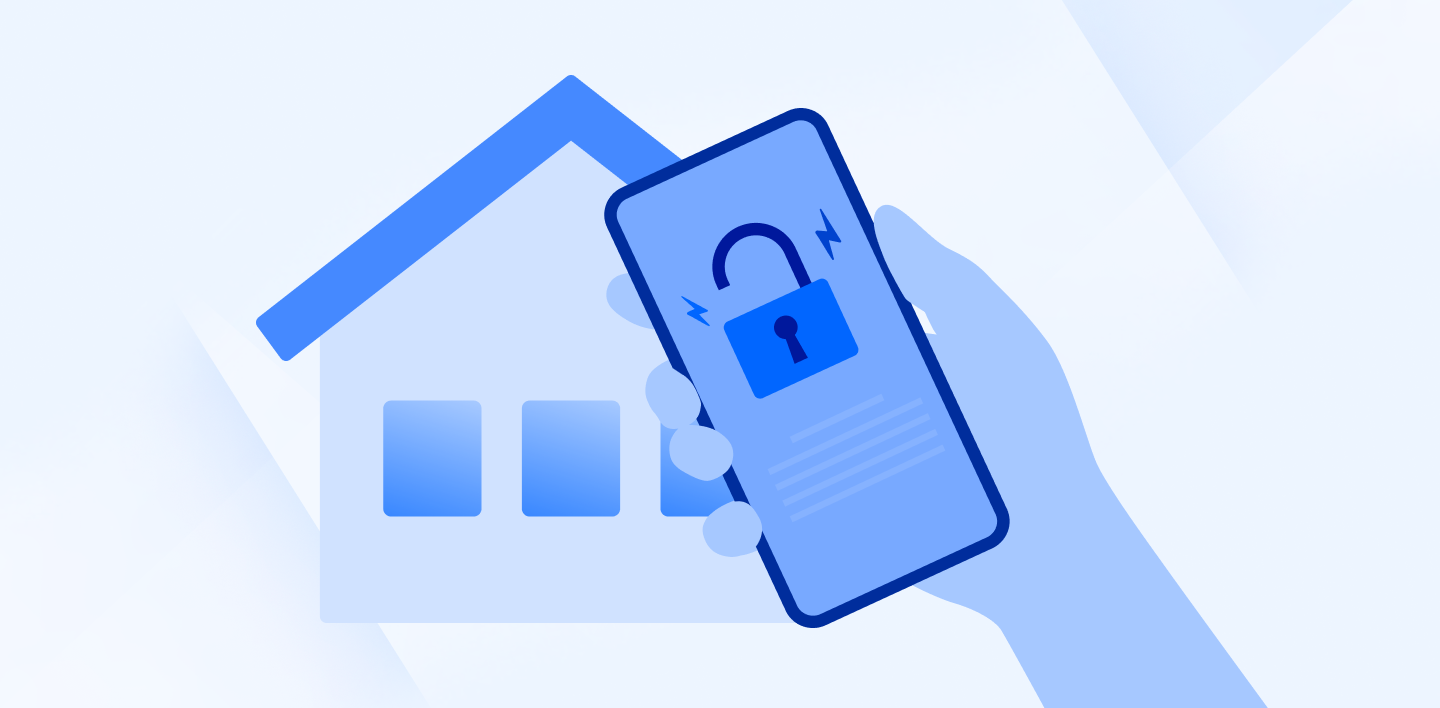
There’s nothing worse than finding the perfect place to stay for your vacation with a great price, location, and size. This is why many people choose Airbnb because it offers flexibility, great prices, and gives you the opportunity to stay in a place for a few days or even months.
Due to its popularity, hackers or scammers view it as the perfect opportunity to scam guests or hosts out of their money, ruining their vacation plans and risking their privacy. But don’t worry; we will explain the most common Airbnb scams to watch out for and what you can do to ensure your next adventure isn’t ruined.
Table of contents
- About Airbnb
- 11 Airbnb scams to watch out for
- Fake listing scam
- Fake reviews
- Phishing
- Bait-and-switch scam
- Payment outside the Airbnb system
- Damage fee scams
- Unauthorized guests
- Illegal rentals
- Fake profile scam
- Account hacking
- Hidden cameras
- How to avoid Airbnb scams
About Airbnb
Airbnb was founded in 2008 by Brian Chesky, Joe Gebbia, and Nathan Blecharczyk. The idea came when the founders needed extra money, so they rented out air mattresses in their San Francisco apartment during a design conference, advertising it as an air bed and breakfast.
Since then, the platform has grown significantly, especially for digital nomads, Airbnb currently has:
- Over 7 million listings across 220+ countries
- 1.5 billion guest stays since Airbnb’s founding
- Los Angeles leads with about 44,594 listings, followed by New York City with 38,792
- Over 370 million reviews, with more than 100 five-star reviews posted every minute
- 150 million users globally
The horror film Barbarian even has a plot based on a woman double-booking an Airbnb and staying with a mysterious stranger, highly recommend!
11 Airbnb scams to watch out for
Here are some of the most common scams and how to avoid them so scammers don't ruin your next vacation.
Fake listing scam
This is probably the most common Airbnb scam, and it is also found on many real estate websites. The goal is to take advantage of people looking for an Airbnb listing or long-term property rental.
Think of an Airbnb fake listing scam as the apartment rental equivalent of catfishing in the dating world. These listings often display and advertise apartments with beautiful images and prices that are lower than the usual market rates to attract renters.
Similar to catfishing, and social media scams, fake listing scams use stolen images from other websites to make their listings look as attractive and authentic as possible. After the booking, guests will arrive to find that the apartment is either occupied, unavailable or never existed.
To prevent becoming a victim of this scam, you should only book apartments from the official Airbnb website, check reviews, examine the host’s profile, do a reverse image search, and never pay outside the Airbnb platform for further insurance.
Fake reviews
Another way to avoid fake listing Airbnb scams is to check the reviews. Fake reviews are a type of brushing scam that scammers use to manipulate reviews by creating multiple profiles to leave positive reviews to trick people into booking a place that’s not up to scratch.
Always check the reviews and their profiles to avoid these kinds of scams. New accounts with only one or two reviews are typically a red flag.
If you’re really concerned, you can always message the seller to address your concerns; if they are legitimate, they should be honest and address your concerns. If their behavior is defensive or they don’t answer your questions, avoid the listing to one with more favorable reviews.
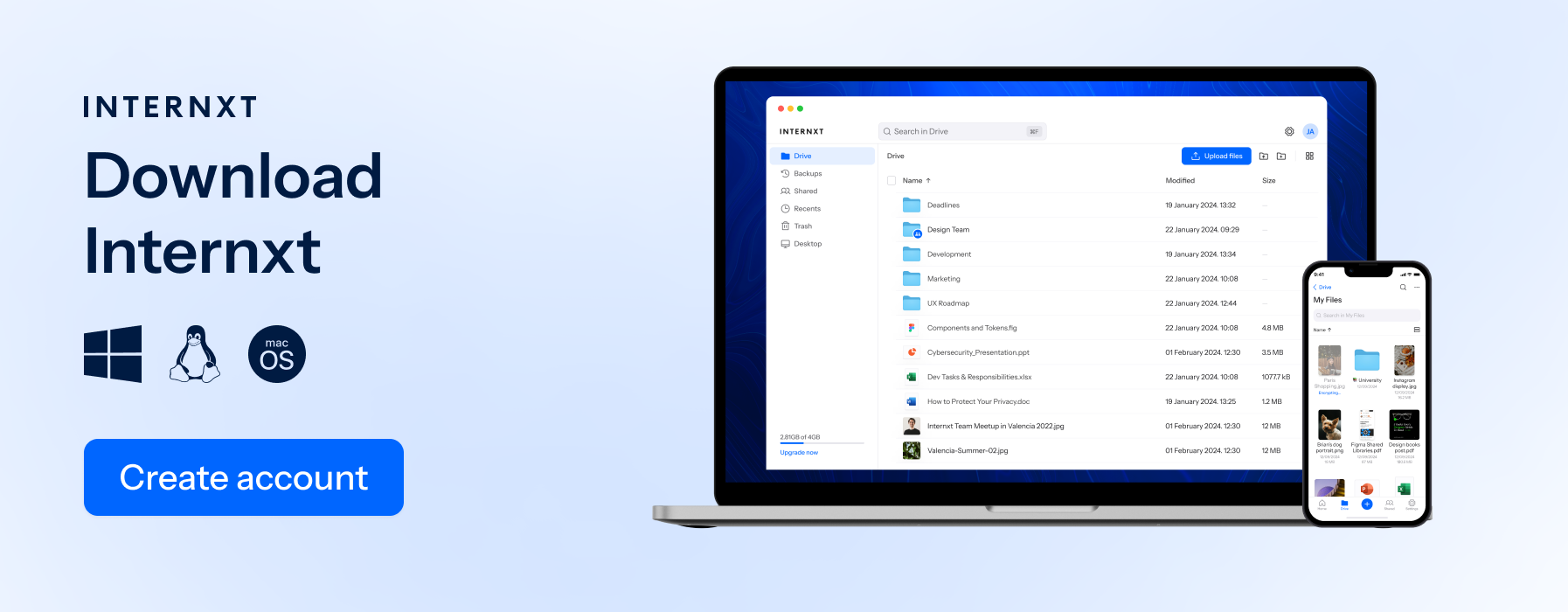
Phishing
Phishing scams are another common problem for Airbnb. Scammers use the platform to send emails, impersonating the company in an attempt to steal your personal information or money.
They will send fake emails with a link to a fraudulent website, claiming there is an issue with the guest's reservation or account, and the only way to resolve it is to click on the malicious link.
If you click the link, you will be sent to a fake website asking for login details or payment information. The scammer will use this information to steal money from your bank or access and steal your data from other accounts.
To avoid these kinds of Airbnb scams, check the sender’s email address and verify it from the website, look for a sense of urgency or grammar mistakes, and if in doubt, contact Airbnb support.
Bait-and-switch scam
A bait-and-switch scam works similarly to a fake listing scam. In this example, a host lists a property with an attractive price and photos as bait, and when the guest books, the host switches the details.
The switch could be increasing the price from the original, offering a different property (at an increased price), or claiming the listing is no longer available. Like other common scams, the guest will feel a sense of urgency or pressure to accept these terms at a higher cost to them.
You can use reviews, reverse image searches, and similar tips to avoid other Airbnb scams, prevent a bait-and-switch from happening to you, and remember never to pay outside of Airbnb’s platform.
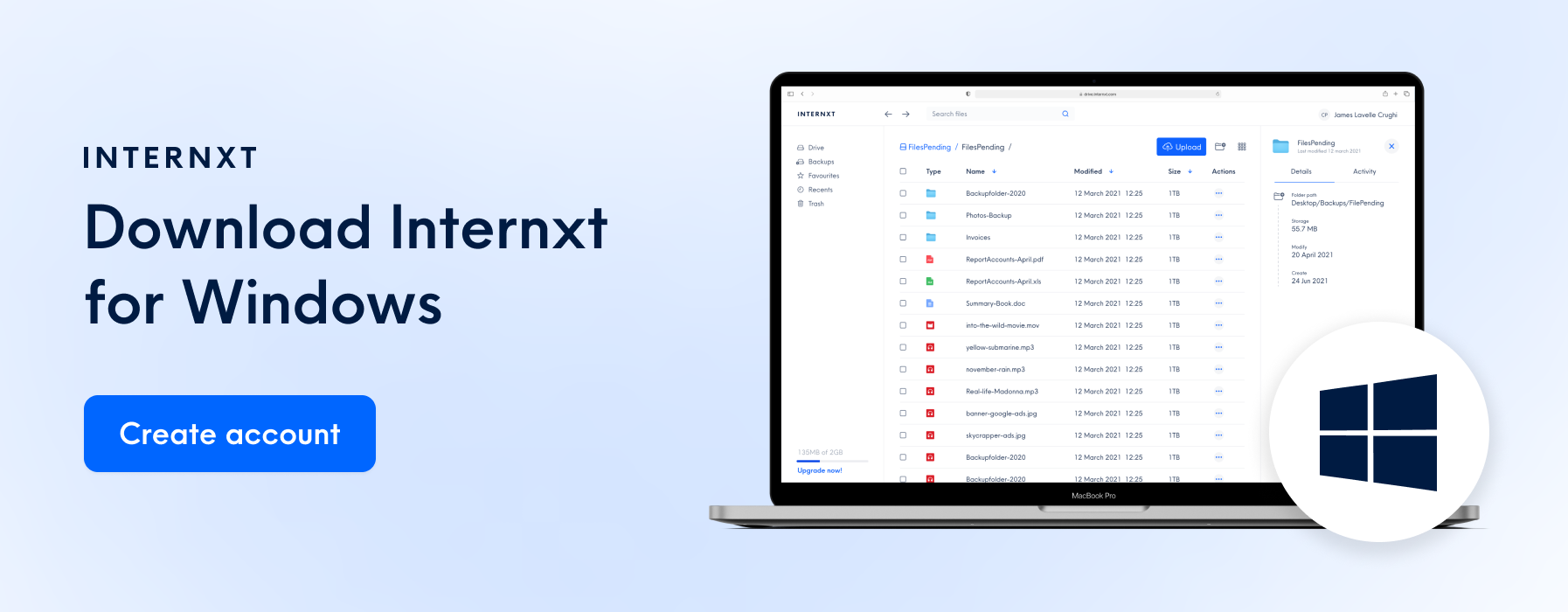
Payment outside the Airbnb system
Another red flag to watch out for when booking with Airbnb is paying the host outside the platform. According to the Airbnb help center, they only allow payments off-site payments only when
“... permission has been granted in advance by Airbnb and guests are made aware prior to booking. This includes but is not limited to: collections of local tax or occupancy tax, “all-inclusive” fees at timeshares or resorts, security deposits or incidental fees such as pet fees, valet parking, wifi charge, gym fee, breakfast fee, etc.”
However, Airbnb does not allow payment for reservations outside the platform. Despite this, scammers will still try to get you to pay for the reservation via other payment methods, such as PayPal or cryptocurrency, to take your money and run.
If you ever get requested to pay outside of Airbnb, never do it. Only use their platform, without it, you have no insurance and can risk losing your money.
Damage fee scams
Damage fees are an attempt by Airbnb scammers to take more of your money by claiming you or other guests damaged the property during your stay, and you have to pay for these damages. The host may threaten you with legal action and other means to get you to make the payment.
Your best option to avoid these scams is to take videos or photos of your accommodation before and after your stay (with the host if possible), keep records of any communication with the host, and report any damage or issues immediately through Airbnb’s platform.
Unauthorized guests
Again, this kind of Airbnb scam uses false claims to get more money from the guest.
The host will claim you had more guests staying than what you booked for without authorization, using this claim to seek more compensation, leave you a negative review, or ban you from the platform.
Don’t try to cheat the system. Always be transparent with the host about how many people are staying. If they try to claim you had more guests staying, and it's not true, report it to Airbnb with supporting evidence, such as previous messages and photos, to prove no damage was done.
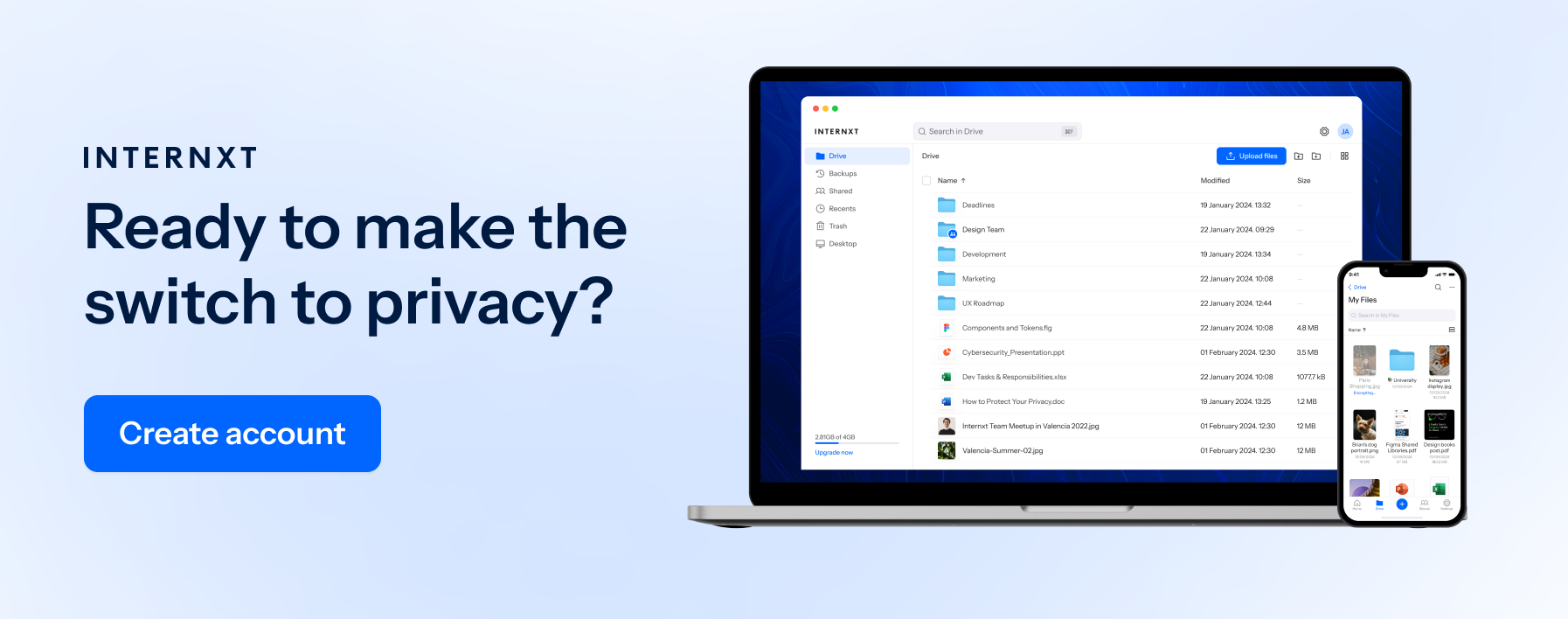
Illegal rentals
More and more countries and popular tourist cities, like Barcelona, are making Airbnb illegal, arguing that short-term rentals drive up housing prices and reduce the availability of long-term rental properties for local residents.
Residents may also complain about the disruption caused by transient guests, including noise, lack of neighborhood stability, and safety concerns. There are also concerns about landlords complying with local laws, taxes, and safety regulations.
This kind of Airbnb scam happens when a host lists a property for rent or sublet without the authorization or legal paperwork to do so. If you unknowingly book an illegal rental, you could face consequences ranging from getting kicked out of your stay early to facing fines or legal action for violating local laws.
It’s always best to search online for the local laws regarding Airbnb for where you’re going to visit and ask the host if they have the necessary permits to rent out the apartment before booking.
Fake profile scam
A fake guest scam happens when someone creates a fake profile to scam the host or gain unauthorized access to properties. Once they arrive, they can cause all sorts of damage, such as throwing parties, damaging your home, stealing your belongings, or refusing to leave.
Similar to a fake listing scam, the best way for hosts to avoid fake profiles is to thoroughly check the profile’s information, photos, and reviews from other hosts. If there is a lack of detail, or these are missing, it’s a sign that the profile is fake, and you can report it to Airbnb.
Account hacking
Account hacking can occur by clicking on a phishing link to steal your password and gain access to your account or by brute-forcing the password connected to your email, which may have leaked online. Once accessed, they can use the account to make unauthorized purchases or identity theft.
Airbnb has 2-factor authentication for its app, so when setting up your account, enable this feature immediately and set up a strong password to prevent brute force or dictionary attacks that hackers use to try and breach accounts.
If you suspect you are logging in to a fake website from a phishing email, you can check the URL against this list of legitimate Airbnb domains:
- @airbnb.com
- @airbnbaction.com
- @airbnblove.com
- @airbnbmail.com
- @support-email.airbnb.com
- @supportmessaging.airbnb.com
- @airbnb.zendesk.com
- @e.airbnb.com
- @express.medallia.com
- @ext.airbnb.com
- @guest.airbnb.com
- @host.airbnb.com
- @noreply@qemailserver.com
- @outreach.airbnb.com
- @research.airbnb.com

Hidden cameras
One of the more concerning aspects of Airbnb scams is hidden cameras. Hosts can place hidden cameras in private areas of the accommodation to film guests and use the content to extort you, threatening to release the private footage online.
While Airbnb strictly prohibits cameras in these areas, limiting their use to the living room or kitchen, guests may still place hidden cameras to film guests to scam them out of money.
Cameras can be disguised as everyday objects so it’s important to check devices such as smoke detectors, air purifiers, electrical outlets, mirrors, or clocks. You can also check the Wi-Fi to see what devices are connected, as these cameras often need a wireless connection for remote viewing.
Hidden cameras can usually be spotted by turning off the lights and using your phone’s camera to spot reflections or infrared signals. If you spot any cameras, you must take photos of them, report them to Airbnb, request a refund, and report them to the authorities, as cameras in the bedroom or bathroom are a serious breach of privacy laws.
How to avoid Airbnb scams
Now that you know the most common types of Airbnb scams, the question is: How can you avoid them? We have covered what to do if you suspect a scam, but with these tools, you can reduce your chances of getting scammed to make your future experience with Airbnb as safe as possible.
- The first step to creating your Airbnb account is to create a strong password. With Internxt’s password generator, you can create hacker-proof passwords instantly!
- Set up 2FA to prevent hackers accessing your accounts if they managed to get your password.
- Use a VPN when connecting to the host’s Wi-Fi, especially if it’s not protected with a Wi-Fi password. Encrypting your connection with Internxt's encrypted VPN will prevent people from spying on your internet connection and stealing your information.
- Use a Wi-Fi scanner to help you spot hidden cameras that may be connected to the network.
- Check reviews for fake profiles and listings.
- Document photos of the apartment before and after your stay to avoid extra charges.
- Report phishing emails and never click on links if you suspect they contain a malicious link.
- Only pay for your booking on the Airbnb platform.
- Communicate with your host and Airbnb to resolve issues or if you suspect the host is pulling a scam.
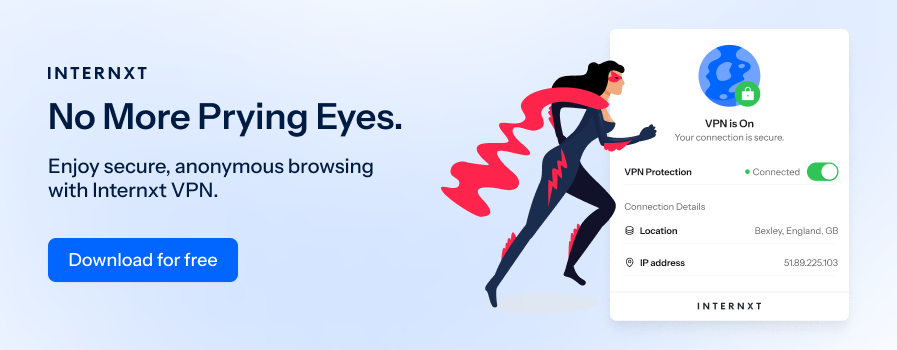
Knowing these kinds of Airbnb scams will help you spot and avoid other common scams hackers use to trick people online. So, wherever your next adventure is, you can book your Airbnb safely and only have to worry about finding the coolest places to see. Enjoy!

